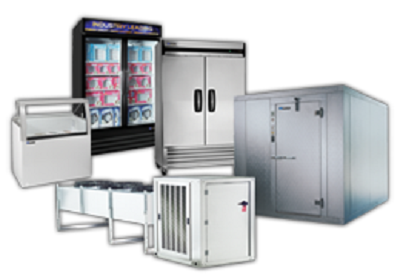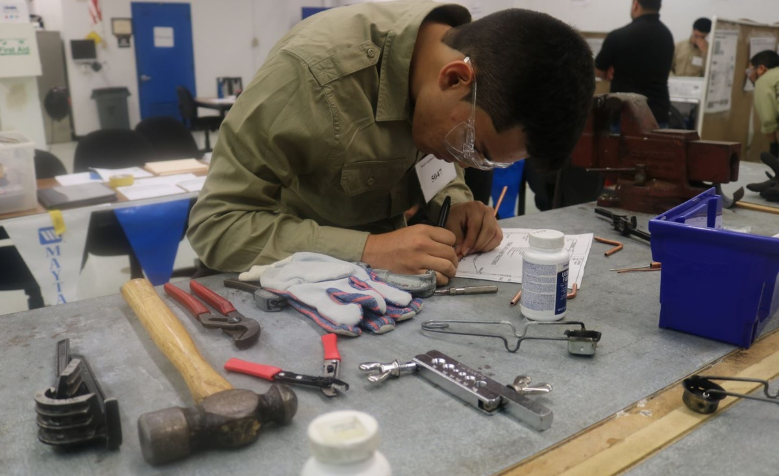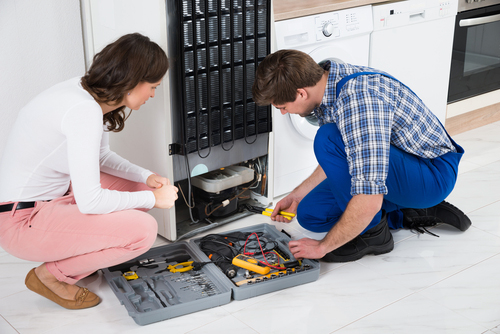Refrigerator repair experts Dependable Refrigeration & Appliance Repair Explain Why Your Fridge Isn’t Cooling Properly
Important Tips for Effective Ref Fixing to Expand Home Appliance Life Expectancy
When it comes to your fridge, correct fixing and maintenance are vital for longevity. Understanding typical problems and recognizing when to act can make all the difference.
Comprehending Usual Refrigerator Problems
Fridges are crucial in maintaining your food fresh, but they can encounter a variety of common troubles that interrupt their efficiency. One regular problem is insufficient air conditioning. If you notice food ruining quicker than usual, inspect the thermostat settings or consider if the door seals are damaged. One more typical problem is extreme sound, which might indicate a malfunctioning compressor or a stopping working fan. You may additionally experience water merging inside or beneath the fridge; this often arises from a stopped up defrost drain or a malfunctioning water line. Furthermore, if your refrigerator's light isn't working, maybe an easy light bulb problem or a trouble with the door button. Ice build-up in the fridge freezer can impede air movement and cooling performance. Acknowledging these concerns early can save you money and time out of commission, guaranteeing your fridge runs efficiently and successfully.
Routine Upkeep Practices
To keep your home appliances running efficiently, you need to remain on top of regular maintenance practices. Tidy the condenser coils, examine the door seals, and keep track of the temperature level setups to ensure peak efficiency. These straightforward tasks can conserve you money and time on repair work down the line.
Tidy Condenser Coils Frequently
Cleansing your condenser coils consistently can substantially enhance your appliance's effectiveness. Dust and dust build up on these coils over time, triggering your home appliance to work more challenging and eat even more energy. To keep them tidy, unplug your home appliance and very carefully get rid of any kind of safety covers.
Inspect Door Seals
Three easy steps can aid you ensure your home appliance's door seals are in good problem. Second, tidy the seals using cozy, soapy water to remove any debris or grime. By adhering to these actions, you'll preserve your device's performance and durability, conserving you cash on energy costs and repair services in the long run.
Display Temperature Level Setups
Frequently monitoring your device's temperature level setups is crucial for best efficiency and effectiveness. Whether you're handling a refrigerator, freezer, or oven, watching on these setups can stop several issues. For refrigerators, go for temperature levels between 35 ° F and 38 ° F; for fridges freezer, remain 0 ° F. If the temperatures are also high or reduced, your device might function harder, squandering power and reducing its life expectancy. Use a thermostat to inspect these setups regularly, especially after significant modifications, like moving your device or readjusting the thermostat. If you observe fluctuations, change the setups appropriately and seek advice from the customer guidebook for guidance. By remaining proactive regarding temperature monitoring, you'll assure your devices run efficiently and last much longer.
Troubleshooting Air Conditioning Issues
When your refrigerator isn't cooling down appropriately, it can lead to spoiled food and lost money, so addressing the issue promptly is important. Begin by checking the temperature level setups to confirm they're at the suggested degrees, usually around 37 ° F for the fridge and 0 ° F for the fridge freezer. If the setups are proper, examine the door seals for any type of gaps or damages; a damaged seal can allow warm air to get in.
Inspect the condenser coils, usually situated at the back or bottom of the unit. Clean them with a vacuum cleaner or brush to enhance efficiency. If troubles continue, it might be time to call a professional.
Dealing With Water Leakage and Ice Build-Up
If you're managing water leak or ice build-up in your device, it's important to identify the source of the trouble. By determining where the water is originating from, you can stop more issues and avoid pricey fixings. Let's explore some effective approaches to take on these typical troubles.
Determine Leakage Sources
How can you effectively identify the sources of water leak and ice build-up in your appliances? Beginning by inspecting the seals and gaskets on your refrigerator and fridge freezer doors. A worn or broken seal can enable warm air to go into, triggering condensation and ice. Next, check the drain pan Check This Out and drainage system for clogs or obstructions; a backed-up drain can lead to water pooling. Seek any type of loosened connections in the water line, which can develop leaks. Check out the defrost drain for ice accumulation, which can interrupt appropriate drain. By systematically inspecting these locations, you'll identify the resource of the issue, permitting you to take the essential steps to repair it and expand your home appliance's lifespan.
Avoid Ice Development
To protect against ice formation in your home appliances, start by verifying the temperature settings are ideal. If your refrigerator or fridge freezer is also cold, it can result in extreme ice accumulation. Check the door seals on a regular basis; damaged seals can let warm air in, triggering condensation and ice development.
Maintain the device well-ventilated and prevent overcrowding, as this can block air flow - Washing Machine Repair Dependable Refrigeration & Appliance Repair Service. Routinely defrost your freezer if it does not have an automatic defrost feature.
If you observe water leakage, determine and deal with any kind of obstructed drain openings, as they can contribute to ice build-up. Tidy the coils and confirm they're working appropriately to preserve peak efficiency. Taking these steps will assist expand your device's life-span and effectiveness.
Addressing Noisy Fridge Sounds
While it may seem alarming, a noisy refrigerator frequently indicates minor issues instead than significant breakdowns. Usual culprits include the compressor, fans, and water lines.
Next, inspect for loosened things inside. In some cases, containers or racks can rattle, creating undesirable sound. Tighten or reposition them to get rid of the audios.
If you discover a clicking sound, it may be the defrost timer. This is commonly harmless yet can show it requires assessment.
An out of balance home appliance can create vibrations and sound. GE appliance repair Oro Valley Dependable Refrigeration discover here & Appliance Repair Service. Resolving these problems promptly can assist keep your fridge's efficiency and prolong its lifespan.
When to Change Parts vs. Complete Replacement

Take into consideration the expense of fixings versus the device's worth. In addition, if you discover ongoing issues that maintain recurring, it's a sign that your device has reached the end of its life.
Recognizing When to Call a Specialist
How can you tell when it's time to call in a specialist for device repair work? If your home appliance stops working entirely or frequently trips circuit breakers, it's another red flag.
You ought to likewise consider your very own convenience degree with repair work. If you're unclear about identifying the trouble or lack the right tools, it's best to connect for assistance. Remember, trying difficult repair work can lead to even more damage or perhaps security risks.

Regularly Asked Questions
Exactly how Frequently Should I Clean the Refrigerator Coils?
You should clean your fridge coils every 6 months. This aids keep efficiency and avoids getting too hot. If you discover excessive dust or animal hair, clean them extra regularly to ensure your fridge runs smoothly.

Can I Use Vinegar for Cleansing My Refrigerator?
Yes, you can utilize vinegar to cleanse your refrigerator! It's an exceptional natural cleanser that eliminates odors and stains. Best Appliance Repair Near You Dependable Refrigeration & Appliance Repair Service. Just mix it with water, use it to surfaces, and clean down for a fresh, clean fridge
What Temperature Should My Refrigerator Be Ready To?
You ought to set your fridge to 37 ° F(3 ° C) for optimal food preservation. This temperature level keeps your food fresh while stopping perishing, ensuring your grocery stores last much longer and decreasing waste. It's a very easy change you can make!
Does a Refrigerator Need to Be Leveled?
Yes, look at these guys your fridge needs to be leveled. If it's uneven, it can affect cooling down efficiency and create excess noise. Check the progressing legs and change them to ensure proper equilibrium for ideal efficiency.
Exactly How Can I Reduce Fridge Energy Intake?
To lower your fridge's power usage, maintain it tidy and well-ventilated, examine door seals for leakages, set the temperature between 35-38 ° F, and prevent overloading it. These steps can significantly lower your energy bills.